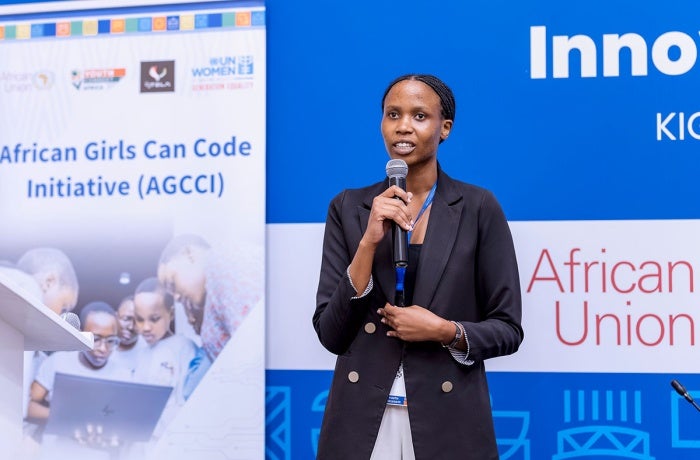From where I stand: ‘In the climate fight, the youth component cannot be relegated to a symbolic level.’
Mercedes Pombo, 23, is a climate activist and co-founder of Jóvenes por el Clima Argentina (Youth for Climate Argentina). She is a philosophy student and a member of UN Women’s Civil Society Advisory Group in Argentina.

Argentina has a well-established track record in human rights and social organization and a clear role for youth in catalysing social and political agendas. This legacy led me to become involved in environmentalism and to understand the climate crisis not as a technical problem that only requires replacing one energy source with another, but as an eminently political and ethical problem.
The structural economic difficulties a large part of our population faces have often led people to think of the environmental agenda as a second-order issue, a luxury that the more developed countries could afford and not us.
The great contradiction is that these economies sustained their development on the resources of the global south, and paradoxically, the worst consequences will impact and are already impacting the countries that historically contributed the least to this crisis.
For this reason, it seemed illogical to me that, while a youth movement against the climate crisis was developing at the international level, there was no expression of this movement in Argentina that would look at the problem from a regional perspective.
Faced with the need to create a representation of this movement but anchored to our geographical and historical reality, we started, together with other peers, Jóvenes por el Clima Argentina, which became the largest youth organization to combat the climate crisis in Latin America.
For this movement to develop, it was necessary to deconstruct the idea in the collective imaginary of environmentalism, often understood as an imported battle, dissociated from other social and economic issues, and reduced to the sum of individual intentions.
The experiences of the feminist movement have provided me with a central perspective for thinking about the climate crisis. For a long time, feminism was also relegated to the background, and, as with environmentalism, it is often considered a discussion belonging to specific privileged sectors associated with an individualistic and depoliticized discourse.
Today we understand that gender gaps have a cross-cutting impact on the entire population and deepen pre-existing inequalities. Their impact is more significant on those already vulnerable.
Mainly when we talk about the climate crisis, the impact of the increase in intensity and frequency of extreme weather events is directly related to social and economic factors. While these are consequences that undoubtedly affect the quality of life of the entire population, heat waves—or cold waves—become a life-or-death situation for those who do not have the necessary tools to cope with them.
On the other hand, the economic impacts of this crisis, such as those caused by the prolonged drought we are experiencing in the country, also result in greater social inequality. That is why, since the creation of Jóvenes por el Clima, we have always thought of politics as a tool for transformation and the collective dimension as a central phenomenon.
Something that is also fundamental for me when analysing this emerging movement is that the youth component cannot be relegated to a symbolic level, especially knowing that the worst effects of the climate crisis will be experienced by the younger (and future) generations.
We don’t just need flags. We must have real spaces of influence in the present to transform it.









